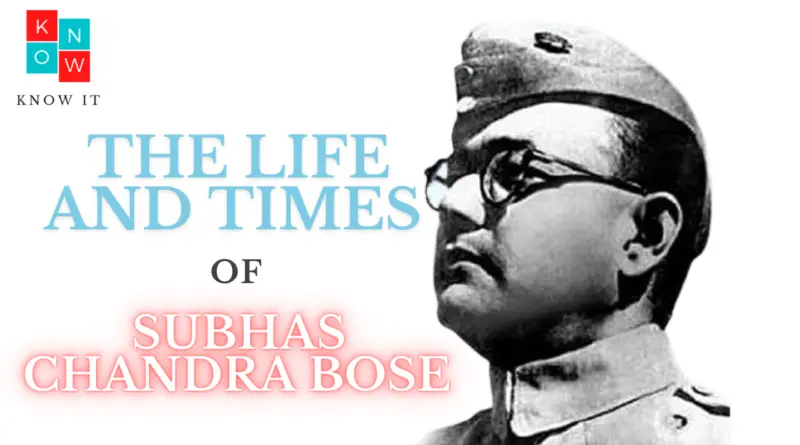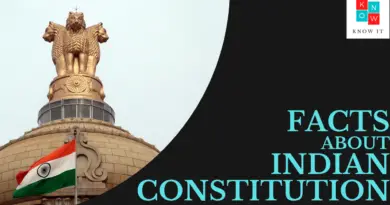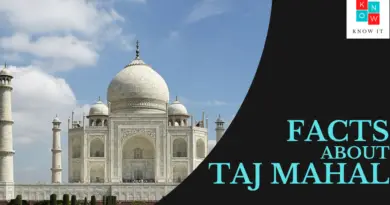The Amazingly Strange & Unbelievable Life of Subhas Chandra Bose
Subhas Chandra Bose
Subhas Chandra Bose was a revolutionary Indian politician who played an instrumental role in the Indian independence movement. He founded the Indian National Army which helped India to gain its freedom.
He was also one of the most influential leaders of the Indian independence movement, and is considered to be one of the most powerful and influential Indians in history.
Subhas Chandra Bose was an Indian politician and a leader of the Indian independence movement. He was also an eminent lawyer who graduated from the University of Calcutta. As a nationalist, he believed in the unification of India under one government. His motto was “Give me blood and I will give you freedom”.
In 1930, he became the President of the Indian National Congress and advocated for Hindu-Muslim unity to counter British rule in India. In 1939, he founded the All India Forward Bloc to promote socialism as a means to end poverty and upliftment for all Indians. In 1940, he left India to seek international support from other countries for his plan of action against British rule.
Subhas Chandra Bose, also known as Netaji, was an Indian nationalist who led the Indian National Army against British rule in India during World War II. He believed that India could not get its independence from British rule without outside help. He led the INA to fight with the Imperial Japanese Army against the British Empire.

How Was the Indian Nationalist Viewed in India?
Indians had a complicated relationship with Subhas Chandra Bose. On the one hand, they loved him for his bravery and patriotism. On the other hand, they resented him for his pro-Axis leanings and tendency to speak in a threatening tone.
What Role Did Subhash Chandra Bose Play in WWII?
The Indian National Army was a military force formed by Indian nationalists in 1942 in Southeast Asia, composed largely of Indian soldiers of the British Indian army who had been captured by Japan during World War II. It was an armed force with the goal of overthrowing British colonial rule and establishing an independent India under the leadership of Bose.
Subhash Chandra Bose was a major political and military leader in India, who became active in revolutionary politics at a young age. He founded the radical nationalist youth organization called “Young Bengal” and agitated for independence from Britain. A committed nationalist, he left India on 19 January 1941 to live in Nazi Germany from 1941 to 1943 with his brother Sarat Chandra Bose, who had been elected President of the Indian National Congress Party two days before his departure. The Indian National Army (INA) was an armed force formed by Indian nationalists in 1942 in Southeast Asia during World War II. The army was initially created as the Indian Legion, trained and commanded by the Germans, with Japanese assistance. After Japan became more powerful in South East Asia, the army was renamed the Indian National Army with Subhas Chandra Bose as its Supreme Commander.
What Happened to Subhash Chandra Bose After the War Ended?
Subhash Chandra Bose spent his entire life fighting for India’s independence from the British rule. After the World War II ended, he was captured by the British and died in mysterious circumstances.
Why is The Death of Subhas Chandra Bose Still a Mystery?
The mystery of Subhas Chandra Bose is a question that has been asked by many people. It is a question that still remains unanswered even after the death of Bose.
Many people believe that he died in an air crash in 1945 and some believe that he escaped to Russia and then to the Soviet Union.
There are many speculations about his death and one such speculation is that he died in an air crash with Japanese General Isoda on 18th August 1945.
Some people also think that Bose was killed by the British government because they feared what he might do if he returned to India after World War II.
Some people think that Bose was killed by the Soviet Union because they wanted him to be silent and not speak about his time spent there with them,
The mystery of Subhash Chandra Bose is still unsolved till date. His ashes were found in an urn at Renkoji Temple in Japan after more than 40 years of his death. A lot of theories have been proposed to explain the mystery behind his death but no one has been able to come up with a conclusive answer till date.



